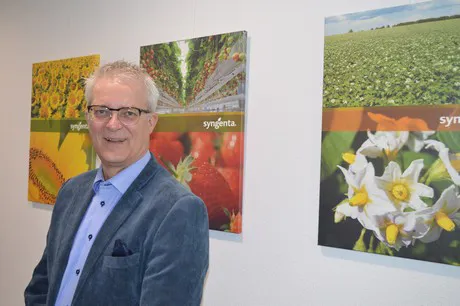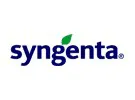The seed suppliers live in turbulent times. As of January 30, 2020, only two solutions for combating fungi on recently planted seeds are being offered. René Huijsmans, Seed Care Manager, Syngenta: "These agents give the seed and young plant resistance against fungi attacks in the earliest stage of the plant."
The possibilities of seed coating are seriously limited by the withdrawal of permits. The permits for neonicotinoids have been withdrawn, and these are part of the coating. Neonicotinoids protect against insect attacks. The political discussion was started by an incident in the south of Germany.

Syngenta already saw this coming in 2006. The agents used at the time were about to be prohibited, and they started to look for solutions. Of course, this cannot be done without extensive testing. René hopes to have all the permits in 2023. "The products are finished. The effectiveness is good, that is not the problem. The required procedures and testing take a lot of time. Without setbacks, a solution can be offered."
Cultivation
In greenhouses in the Netherlands, plants are cultivated in a rather sterile environment. For a tomato plant, attacks of pathogen-sucking insects will not be such a problem. The hygiene standards in the Netherlands are high. This does not apply to all countries in Europe and the rest of the world. And the Netherlands are the biggest exporter of vegetable and flower seeds in the world. René: "We, the Netherlands, should be able to offer a solution for this with high-quality sowing seed, well protected against fungi. It cannot be that we are going to miss that boat. And if it is up to Sygenta, it will not happen. We are doing everything we can. We will not be the problem."
The motto is scouting
Combating fungi seems to be possible with new alternatives. It is a different thing with combating insects by sowing seed treatment. How do growers have to deal with this? René: "Scouting, scouting, and then some more scouting. Look carefully. And react at the right moment. Undesirable insects can multiply incredibly fast, and then you're done. The greenhouse must be cleared and decontaminated. In some crops, there is almost a zero tolerance for aphids. Which really is nonsense, they can be flushed off easily. But that is a different discussion."
Syngenta has, under the name FarMore Technology, developed a special platform for sowing seed treatment. It meets the needs of the customer. Syngenta focuses on the development of innovative products of each individual vegetable crop and combines solutions for sowing seed treatment with technologies and services for applications. FarMore Technology is not a standalone product. It is a technology platform which is in continuous development, and that shows that Syngenta is completely committed to finding new and better methods for sowing seed treatment for vegetable cultivation.
For more information:
Syngenta 
René Huijsmans
+31 (0)164 22 55 34
rene.huijsmans@syngenta.com
www.syngenta.nl/en/farmore
